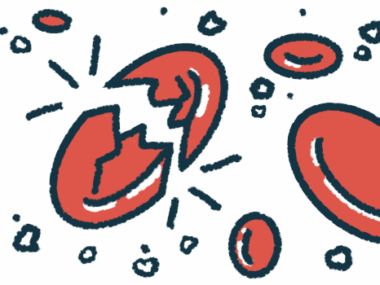Mental healthcare is crucial for teens, young adults with sickle cell
My own experience taught me the value of providing teens with resources
Written by |

In the fall of my sophomore year of high school, my hematologist recommended me for my pediatric sickle cell program’s teen clinic. At that point, I was going to the doctor every one to three months, with more frequent follow-ups after a vaso-occlusive crisis. After 13 years of visiting doctors at this hospital, my preferred days and times for appointments were well respected. So when I learned that the teen clinic didn’t occur at my preferred time (morning), I was reluctant to give it a try. However, my mom and hematologist persuaded me to attend by telling me there would be pizza and other teens I could befriend.
When clinic day finally arrived in early spring, I attended my usual hematology appointment, then proceeded to the group room, where I was met with as many slices of cheese pizza as I wanted and seven other teenagers sitting in a circle. About 15 minutes after the counselor began speaking, I realized the clinic was essentially group therapy for the teens in our hospital’s sickle cell program.
Almost 10 years later, I recall clinic days fondly and as my first experience with formal therapy. The other teens in my group would talk about their experiences missing school and making up classwork, deciding on colleges or jobs based on where they’d have the most support, the challenges of living with chronic pain, the social impact of living with sickle cell, and the mental health struggles that accompany the disease.
These sessions showed me that other teens with sickle cell were also experiencing mental health challenges. I realized that talking about these issues didn’t make me weak, and having a therapist wasn’t a bad idea.
Other teens deserve the same access to resources
When I moved out of state at 18 to attend college, I felt more competent seeking mental healthcare because of my experience in teen clinic. I utilized my university’s counseling services and asked my new hematology team to connect me with mental health resources for young adults with sickle cell.
As I met other young adults with the disease, I was surprised to hear about their varied experiences with mental health support. This emphasized to me the importance of providing such resources in pediatric sickle cell programs to aid in the transition from adolescence to adulthood.
Following my college graduation, I began seeing a private clinical psychologist once a week. My therapist specialized in helping young adults with anxiety, depression, and trauma, and had experience with clients living with chronic pain. My sessions provided a space where I felt comfortable discussing my concerns about getting sick while attending graduate school and working full time. I could also open up about the social isolation and grief of being a young adult with sickle cell disease.
Having access to mental health resources so early in my transition from childhood to adult care was vital for me as someone with a challenging, lifelong disease. It’s why I will continue to advocate for mental healthcare for teens with sickle cell.
Note: Sickle Cell Disease News is strictly a news and information website about the disease. It does not provide medical advice, diagnosis, or treatment. This content is not intended to be a substitute for professional medical advice, diagnosis, or treatment. Always seek the advice of your physician or other qualified health provider with any questions you may have regarding a medical condition. Never disregard professional medical advice or delay in seeking it because of something you have read on this website. The opinions expressed in this column are not those of Sickle Cell Disease News or its parent company, Bionews, and are intended to spark discussion about issues pertaining to sickle cell disease.







Leave a comment
Fill in the required fields to post. Your email address will not be published.